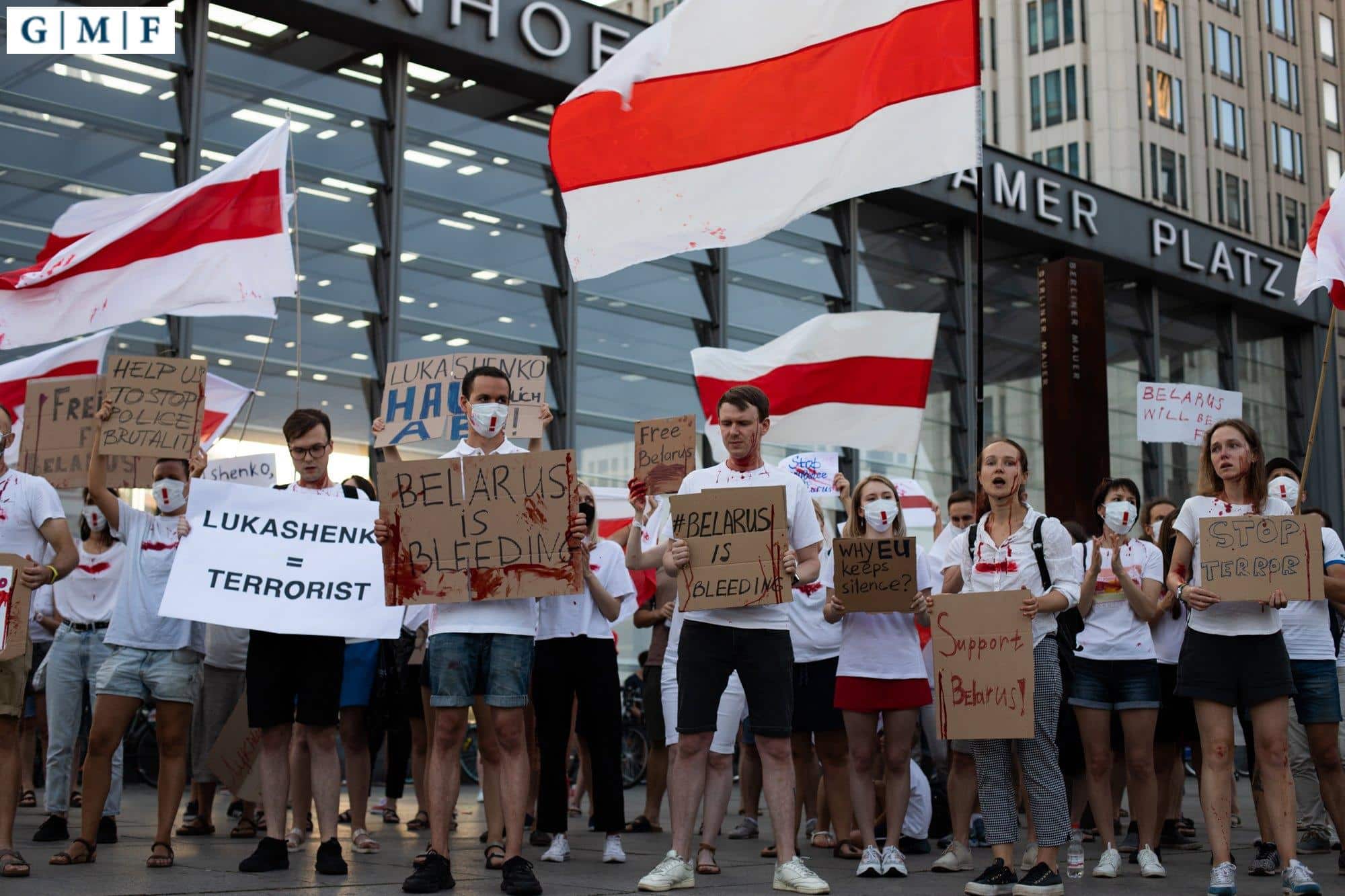
Impact of the War in Ukraine on the Belarusian Economy and Society

Belarus in the Shadow of War
- Belarus in the Shadow of War
- Political and Geopolitical Context
- Economic Impact of Sanctions
- Trade Disruptions and Dependence on Russia
- Industrial and Energy Sectors Under Pressure
- Inflation and Everyday Life
- Migration and Labor Market Changes
- Social Tensions and Polarization
- Information Warfare and Propaganda
- The Role of Civil Society and Resistance
- Future Scenarios and Outlook
- A Society Under Strain
The phrase “Impact of the War in Ukraine on the Belarusian Economy and Society” captures one of the most consequential regional shifts in Eastern Europe’s modern history. While Belarus has not officially entered the war as a combatant, its strategic alignment with Russia has made it both a participant and a victim of the geopolitical conflict.
Since Russia’s full-scale invasion of Ukraine in February 2022, Belarus has faced unprecedented economic sanctions, diplomatic isolation, and social division. The country’s role as a logistical and military platform for Russian operations has brought international condemnation, while its domestic economy and society have suffered from the fallout.
This article examines how the war reshapes the Belarusian economy, affects the daily lives of citizens, and transforms the social fabric of a nation caught between dependence on Moscow and the desire for sovereignty.

Political and Geopolitical Context
Before the war, Belarus was already politically isolated due to the 2020 post-election crackdown on protests and the regime’s systematic suppression of opposition. The invasion of Ukraine deepened this isolation, as Belarus allowed Russian troops to use its territory as a staging ground for attacks.
This decision effectively ended any remaining hopes for neutrality. The West began treating Belarus as a co-aggressor, imposing sanctions similar to those placed on Russia. Meanwhile, Belarus’s dependence on Moscow deepened through financial aid, military integration, and political alignment within the Union State framework.
In this geopolitical environment, Belarus finds itself locked in a dangerous dependency cycle: isolated from Europe, economically tied to Russia, and politically constrained by its authoritarian leadership.
Economic Impact of Sanctions
Western sanctions imposed after 2022 targeted critical Belarusian industries, including potash exports, oil refining, and banking. These sectors represented the backbone of the national economy, providing up to 50% of export revenues.
Collapse of Export Markets
According to IMF estimates, Belarus’s GDP contracted by more than 5% in 2022. The closure of European markets forced exporters to redirect trade toward Russia, China, and Asian partners—often at reduced profitability and logistical difficulty.
Potash and Oil: Economic Lifelines Severed
Potash, one of Belarus’s primary exports, was hit hardest. Lithuania’s decision to suspend transit through the port of Klaipėda cut off the main export route. The state-owned giant Belaruskali faced near-total isolation from Western buyers, significantly reducing foreign currency inflows.
Similarly, Belarus’s oil refining industry suffered as sanctions disrupted the supply of Western components and markets, compelling refineries to sell to Russia at discounted prices.
Trade Disruptions and Dependence on Russia
Russia quickly became Belarus’s economic lifeline. By 2023, over 70% of Belarus’s trade was conducted with Russia, compared to just 48% in 2019. This transformation entrenched Belarus’s economic subordination to its larger neighbor.
Financial Dependence
Russian loans and energy subsidies have kept the Belarusian budget afloat. In exchange, Moscow gained deeper leverage over Minsk’s strategic decisions, from defense policies to industrial cooperation.
Alternative Markets: China and the Global South
Belarus has attempted to diversify by seeking trade with China, India, and Iran, aligning with Russia’s broader “pivot to Asia.” However, these markets remain limited in scale and profitability, making it difficult for Belarus to compensate for lost Western revenues.
As World Bank reports indicate, Belarus’s isolation from the EU—its largest pre-war trading partner—has left long-term scars on industrial productivity and technological development.
Industrial and Energy Sectors Under Pressure
The industrial base of Belarus, including machine-building and automotive production, has been heavily affected by supply chain disruptions. Factories that relied on Western components now struggle to operate under sanctions.
In response, the government has pursued import substitution with mixed results. Some domestic industries have managed to adapt by sourcing Chinese parts, while others have declined sharply due to technological incompatibility and lower quality inputs.

Energy and Transit
Belarus remains an important transit route for Russian energy exports. However, the reduction in European demand has decreased transit revenues. Meanwhile, domestic energy prices are rising, affecting both households and industries.
Inflation and Everyday Life
Economic sanctions and trade disruptions have triggered inflationary pressures that directly impact ordinary Belarusians. The ruble’s volatility and shortages of imported goods have led to price spikes across essential sectors—food, medicine, and technology.
Inflation exceeded 17% in 2022, eroding purchasing power. Imported goods such as electronics, car parts, and pharmaceuticals became increasingly expensive or unavailable.
Many households have turned to informal trade networks or cross-border shopping in neighboring countries. However, stricter border controls and limited foreign currency access have constrained these coping mechanisms.
Migration and Labor Market Changes
The war has intensified migration trends already underway since 2020. Tens of thousands of Belarusians have left for Poland, Lithuania, and Georgia, seeking political safety and economic opportunity.
Brain Drain and Workforce Shortages
Highly skilled workers—especially in IT, engineering, and academia—have relocated abroad. The once-thriving Belarusian IT sector, previously dubbed “the Silicon Valley of Eastern Europe,” has suffered as companies relocate to avoid sanctions and repression.
Remittances and Economic Support
Paradoxically, remittances from Belarusians abroad now represent a growing share of national income, partially offsetting domestic economic decline.
The government, however, views mass emigration with suspicion, framing it as a threat to national stability and imposing new restrictions on foreign work and travel.
Beyond economics, the war has deepened social divisions within Belarusian society. State-controlled media promote narratives aligning Belarus with Russia’s “defense of the motherland,” while independent voices condemn the invasion as an act of aggression.
This polarization has created an atmosphere of distrust and fear. Families and communities are often split over their views on the war. Teachers, journalists, and civil servants face growing pressure to conform to the official narrative or risk dismissal and persecution.
As civil liberties shrink, public discussion of the war is virtually prohibited. The result is a society caught between silence and cynicism, where truth becomes a private act of resistance.
Information Warfare and Propaganda
The Belarusian state has intensified its control over media and online discourse. The government disseminates pro-Russian propaganda through television, education, and social networks, framing the war as a defensive operation against NATO expansion.
At the same time, independent outlets and bloggers have been forced into exile. Platforms such as Belsat TV and Nexta continue broadcasting from abroad, reaching millions of Belarusians via VPNs and Telegram channels.
Information warfare has become a new battleground, where access to reliable news is itself an act of defiance.
The Role of Civil Society and Resistance
Despite repression, Belarusian civil society continues to operate—often from exile. NGOs, human rights organizations, and independent trade unions document abuses and provide aid to those affected by the war’s consequences.
Digital activists collaborate with Ukrainian and European organizations to counter propaganda, monitor sanctions enforcement, and promote humanitarian assistance.
These efforts demonstrate the resilience of Belarusian society, even under immense pressure.
Future Scenarios and Outlook
The future of Impact of the War in Ukraine on the Belarusian Economy and Society depends on several uncertain variables: the duration of the war, the evolution of Western sanctions, and internal political dynamics in Minsk and Moscow.
Three potential scenarios emerge:
- Deepening Dependence on Russia – Belarus becomes fully integrated into Russia’s economic and military structures, sacrificing sovereignty for survival.
- Gradual Reorientation – If geopolitical tensions ease, Belarus could seek cautious re-engagement with Europe and regional diversification.
- Internal Transformation – Social and economic pressure may eventually foster domestic reform or political change, particularly if Russia’s influence wanes.
In all cases, the legacy of war will continue to shape Belarus for decades—economically, socially, and psychologically.
A Society Under Strain
The Impact of the War in Ukraine on the Belarusian Economy and Society reveals how closely intertwined economics, politics, and identity have become in the post-Soviet space. Belarus, while not a direct battlefield, is a nation at war with its own dependencies and fears.
The war has exposed the fragility of the Belarusian economic model, over-reliant on Russian markets and vulnerable to sanctions. It has fractured society, forcing citizens to choose between loyalty, silence, or resistance.
Yet, amid hardship, many Belarusians continue to demonstrate courage and adaptability—building networks of solidarity, defending truth, and imagining a future beyond coercion. Their resilience suggests that even under the shadow of war, the hope for a freer and more independent Belarus endures.






Leave a Reply
You must be logged in to post a comment.